
Sonja Henie was a Norwegian figure skater and film star. She was a three-time Olympic champion in women's singles, a ten-time World champion (1927–1936) and a six-time European champion (1931–1936). Henie won more Olympic and World titles than any other ladies' figure skater. She is one of only two skaters to defend a ladies' singles Olympic title, the other being Katarina Witt, and her six European titles have only been matched by Witt.

The Winter Olympic Games, also known as the Winter Olympics, is a major international multi-sport event held once every four years for sports practiced on snow and ice. The first Winter Olympic Games, the 1924 Winter Olympics, were held in Chamonix, France. The modern Olympic Games were inspired by the ancient Olympic Games, which were held in Olympia, Greece, from 776 BCE to 394 CE. The Baron Pierre de Coubertin of France founded the International Olympic Committee (IOC) 1,500 years later in 1894, leading to the first modern Summer Olympic Games in Athens, Greece in 1896. The IOC is the governing body of the Olympic Movement, with the Olympic Charter defining its structure and authority. The original five Winter Olympic Sports were bobsleigh, curling, ice hockey, Nordic skiing, and skating. The Games were held every four years from 1924 to 1936, interrupted in 1940 and 1944 by World War II, and resumed in 1948. Until 1992, the Summer Olympic Games and the Winter Olympic Games were held in the same year. A decision to change this was made in 1986, when during the 91st International Olympic Committee session, IOC members decided to alternate the Summer Olympic Games and the Winter Olympic Games on separate four-year cycles in even-numbered years. Also, at that same congress it was decided that 1992 Winter Olympics would be the last to be held in the same year as the Summer Games and that to change the rotation, the games that would be held in 1996 would be brought forward by two years, being scheduled to 1994. After those games, the next were to be held in 1998 when the four-year Olympic Cycle resumed.

The 1984 Winter Olympics, officially known as the XIV Olympic Winter Games and commonly known as Sarajevo '84, were a winter multi-sport event held between 8 and 19 February 1984 in Sarajevo, Yugoslavia. It was the first Winter Olympic Games held in a Slavic language-speaking country, as well as the only Winter Olympics held in a communist country before the 2022 Winter Olympics in Beijing, China. It was the second consecutive Olympic Games held in a communist country, after the 1980 Summer Olympics in Moscow, Russian SFSR, Soviet Union.

Katarina Witt is a German former figure skater. A two-time Olympic champion, Witt is regarded as one of the greatest ladies' singles figure skaters of all time. Her Laureus profile states that "she is remembered most for her overall athleticism, her charismatic appeal and her glamorous image on the ice."

An Enemy of the People is an 1882 play by Norwegian playwright Henrik Ibsen that delves into the conflict between personal integrity and societal norms. The play centers on Dr. Thomas Stockmann, who discovers a serious contamination issue in his town's new spa baths, endangering public health. His courageous decision to expose this truth brings severe backlash from local leaders, including his brother Peter Stockmann, who is a powerful political figure in the town.

Peer Gynt is a five-act play in verse written in 1867 by the Norwegian dramatist Henrik Ibsen. It is one of Ibsen's best known and most widely performed plays.
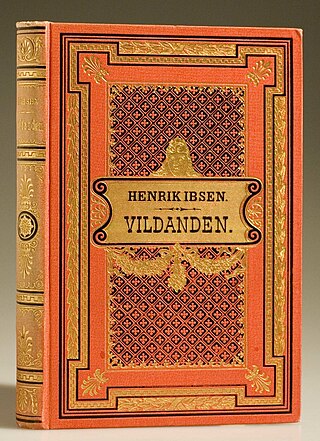
The Wild Duck is an 1884 play by the Norwegian playwright Henrik Ibsen. It explores the complexities of truth and illusion through the story of a family torn apart by secrets and the intrusion of an idealistic outsider. It focuses on the Ekdal family, whose fragile peace is shattered by Gregers Werle, an idealist who insists on exposing hidden truths, leading to tragic consequences. The play was written in a realistic style, but literary scholars have pointed out the play's kinship with symbolism. It blends themes such as deception, betrayal, and the disillusionment of modern life with moments of comedy and satire, and is considered the first modern masterpiece in the genre of tragicomedy. The Wild Duck and Rosmersholm are "often to be observed in the critics' estimates vying with each other as rivals for the top place among Ibsen's works".
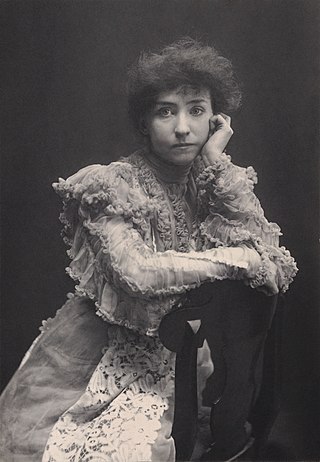
Minnie Maddern Fiske, but often billed simply as Mrs. Fiske, was one of the leading American actresses of the late 19th and early 20th century. She also spearheaded the fight against the Theatrical Syndicate for the sake of artistic freedom. She was widely considered the most important actress on the American stage in the first quarter of the 20th century. Her performances in several Henrik Ibsen plays helped introduce American audiences to the Norwegian playwright.

The Pillars of Society is an 1877 play written by Norwegian playwright Henrik Ibsen.
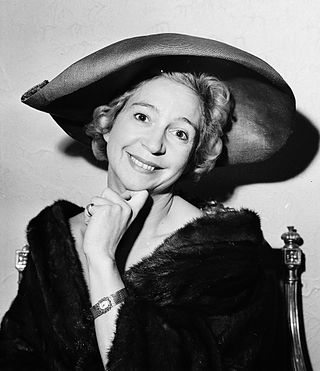
Eva Wenche Steenfeldt Stang, better known as Wenche Foss, was a leading Norwegian actress of stage, screen and television.
St. John's Eve, is a play written by Henrik Ibsen and first performed in 1853. The play is considered apocryphal, because it never entered Ibsen's collected works. It was poorly received at its premiere at Den Nationale Scene in Bergen in 1853.

Nola Rae MBE is a mime artist.
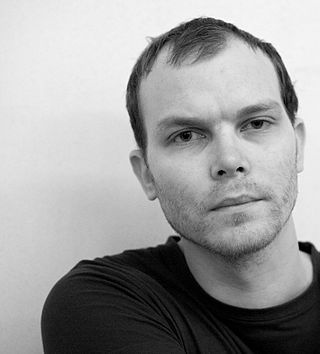
Johan Harstad is a Norwegian novelist, short story writer, playwright and graphic designer. He lives in Oslo.

Knut Kirsebom Wigert was a Norwegian actor, known for his many Ibsen roles and the establishment of an Ibsen museum in Oslo.

Gerda Ring was a Norwegian stage actress and stage producer. She was the daughter of writer Barbra Ring, and married actor and theatre director Halfdan Christensen in 1922. They were parents of the actors Bab Christensen and Pelle Christensen.
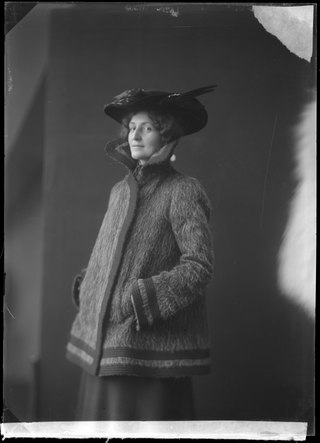
Agnes Mowinckel was a Norwegian actress and theatre director. Born in Bergen into a distinguished family, she became Norway's first professional stage director. A pioneer in bringing painters to the theatre, she used light as an artistic element, and engaged contemporary composers. She took part in theatrical experiments, worked at small stages in Oslo, and founded her own theatre.
Elisabeth Jeremiassen Gording was a Norwegian actress.
Milja Salovaara is a Finnish costume designer and scenographer/set designer. She has worked in Norway, Sweden and Finland.
The Carl Johan Theater was a theater in Oslo, Norway. It was initially located in the Christiania Tivoli amusement park in Oslo from 1893 to 1895, where it was led by Olaf Mørch Hansson. It staged performance of works such as Henrik Ibsen's Ghosts, Gabriel Finne's Før afskeden, and Gunnar Heiberg's Balkonen. Kalle Løchen was among the first actors it engaged.















